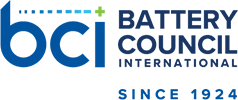FOR IMMEDIATE RELEASE
BRUSSELS – Battery Council International (BCI), EUROBAT and the International Lead Association (ILA), have announced a new voluntary target to protect worker health in the lead producing and battery manufacturing and recycling industries.
Significant improvements have already been recorded in the now completed three-year voluntary programme to reduce worker blood lead levels to below 30mcg/dL (microgrammes per deciliter) and the new target of 20mcg/dL will reduce the level of lead in blood of employees still further – BCI represents battery manufacturers in North America, EUROBAT in Europe, Africa and the Middle East and ILA represents lead producers principally in Europe and North America.
The lead battery manufacturers aim to achieve the 20mcg/dL target by the end of 2025 and have established an interim milestone of 25mcg/dL by the end of 2019, while lead producers are committed to achieving the target of 20 mcg/dl as soon as reasonably practicable.
The new voluntary employee lead exposure reduction target of 20mcg/dL announced by EUROBAT today goes way beyond the current European binding limit value of 70mcg/dL and highlights why we requested that DG Employment make revision of the existing regulatory limit a priority. In 2019, lead battery manufacturers will review if the target of 20 µg/dl can be achieved even faster. The European lead battery manufacturing industry is committed to ensuring that its workforce is protected from workplace risks and to delivering a quality product that is essential to today’s transportation and energy storage needs,” said Rene Schroeder, Executive Director of EUROBAT.
ILA Managing Director, Andy Bush, said: “The acknowledged benefits of lead batteries supported by the commitment of the lead and battery manufacturing and recycling industry to go beyond regulatory compliance in protecting its employees and the environment will help secure predicted market dominance of lead batteries in many applications for the foreseeable future.”
The major step taken today to improve the protection of workers is made possible by improvements in manufacturing process technology, employee education programmes and a commitment from the lead and lead battery sector to make the continuous reduction of employee lead exposure a priority.
Mark Thorsby, Executive Vice-President of BCI, acknowledged that the formation of a strategic alliance in 2016 between BCI, EUROBAT and ILA was a major driver in being able to obtain the commitment to an ambitious joint blood lead reduction target. “In the USA we embarked on our voluntary compliance program over 20 years ago and to be able to announce a very ambitious new target across Associations representing the lead battery value chain in several regions will not only benefit the wellbeing of employees and but also help support the future sustainability of the global lead battery industry,” he said.
In transportation, more than a billion vehicles worldwide use lead batteries to start their engines and power on-board electronics. All fuel-efficient hybrid and fully electric vehicles also require advanced lead batteries in conjunction with other battery technologies. Collectively, the new generation of start-stop vehicles that use an advanced lead battery will continue to provide significant fuel savings.
Within the energy sector, lead batteries store renewable energy generated by cleaner, greener sources like wind and solar. These industrial lead batteries are the world’s most scalable, economic way to load the grid and reliably supply emergency back-up power during outages. This ensures critical medical, data and security services continue to operate.
These attributes, coupled with the fact that in the United States and in Europe more than 99% of lead-based batteries are collected and recycled to produce new batteries, makes them the most sustainable as well as a safe and lowest cost solution to the planets energy storage needs.


